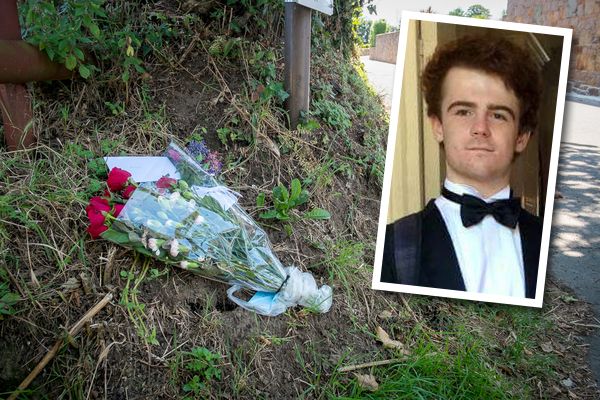

Although two youths convicted of perverting the course of justice in relation to the death of 16-year-old Morgan Huelin last year have lost their appeals, one of them has had his sentence halved.
This morning the appeal court judge Sir Christopher Pitchers explained why. But also said the court found itself in a very difficult situation.
Morgan Huelin died in July last year after a party at a friend’s house. He had taken a cocktail of legal and illegal drugs. Five youths who were also at the party were later convicted of perverting the course of justice because they’d moved Mr Huelin’s body to a nearby road, and because to varying degrees, had lied to the emergency services.
Following the trial the boys were given a range of sentences. One was given 140 hours community service – he’d also been found guilty of possessing drugs and indecent images of children. Of the others – who were only convicted of perverting the course of justice - two were given 100 hours community service, another 50 hours, and the fifth bound over.
Earlier this week all five appealed against their convictions, but three later abandoned their attempts. The two that carried on had been given different sentences: one had been given 100 hours the other 50.
In trying to get their convictions quashed lawyers acting for the two youths argued the original Youth Court panel had drawn the wrong conclusions from the evidence presented to them.
The defence claimed the youths moved Mr Huelin from the house to the road because of “parent fear." One of the boys, who lived in the house, was worried what his parents would say if they found Mr Huelin.
But the prosecution argued the boys’ motive was “police fear;" that the boy who lived in the house wanted Mr Huelin moved because, if the police came to the house, they would find drugs and pornography. The police did later search the property, did find drugs and pornography, and the boy was charged and convicted.
The prosecution also argued the other boys went along with the plan so as to help their friend, and to hide what had happened.
In the appeal the defence attempted to counter these claims. But Sir Christopher noted an appeal is not a re-trial. He and the other three people on the panel simply had to decide whether the decision made by the original court was correct, and as far as they were concerned, it was.
With their appeals rejected, the defence then asked the panel to consider reducing their clients’ sentences. The defence argued it was unfair for the four boys who were convicted of perverting the course of justice, who they said were all equally culpable, and had been equally co-operative, to then be given such a range of sentences.
Sir Christopher told the court the panel found themselves in a quandary. He said they did agree the four boys were equally responsible, and that it was unfair they should have different sentences. He said it appears the boy who was bound over was given a more lenient sentence because he “helped” the police, by answering their questions, whereas others didn’t. Sir Christopher added in Jersey, when you’re arrested, you have a right to silence, and shouldn’t be penalised for exercising that right.
According to Sir Christopher that left the court with three options. They could reduce the sentence of the two appellants to being bound over; they could treat the two “fairly” by upping the sentence of the boy given 50 hours community service to 100; or they could reduce the sentence of the boy given 100 hours to 50.
The panel reasoned if the boys were simply bound over it would send out the wrong message – they had committed a serious crime. In the view of Sir Christopher, the boy who had been given this sentence had been very lucky, he said he should have been treated the same as others. He also noted that it seemed unfair to up the sentence. So in the end they had decided to go for the reduction option.
Nevertheless, on reflecting on the outcome, Sir Christopher said it was still far from ideal because of the continuing differences in the sentences.
Comments
Comments on this story express the views of the commentator only, not Bailiwick Publishing. We are unable to guarantee the accuracy of any of those comments.